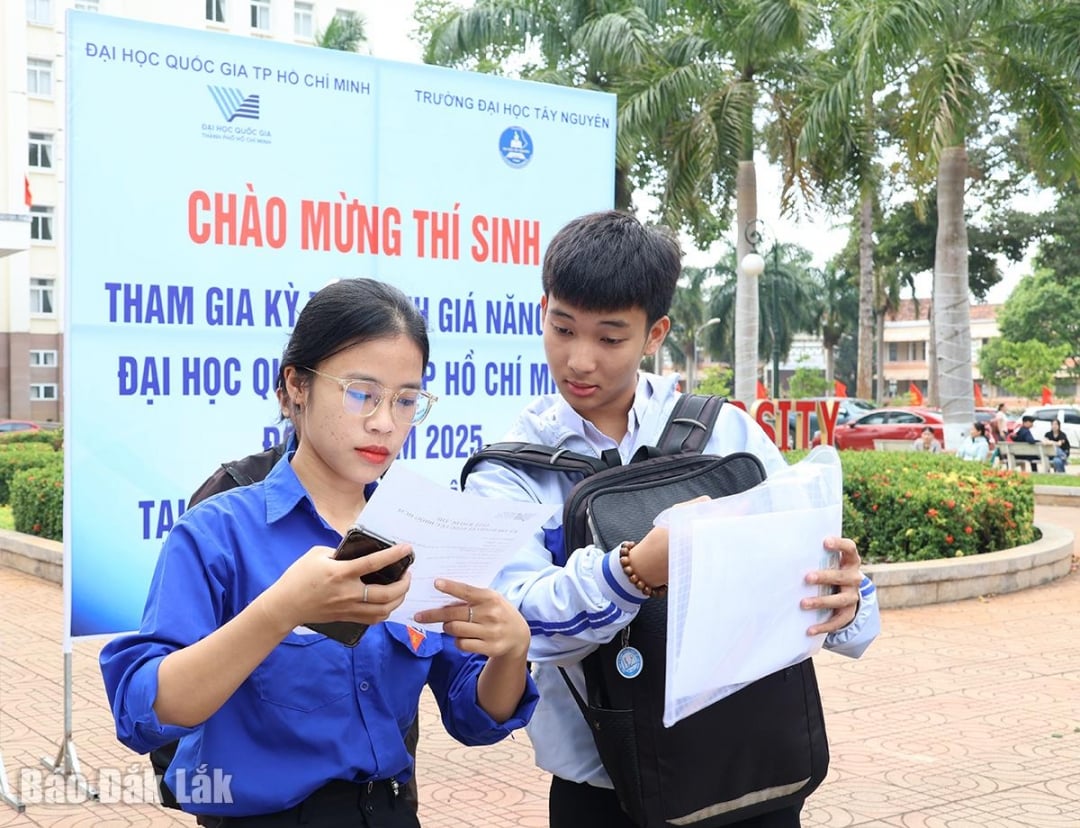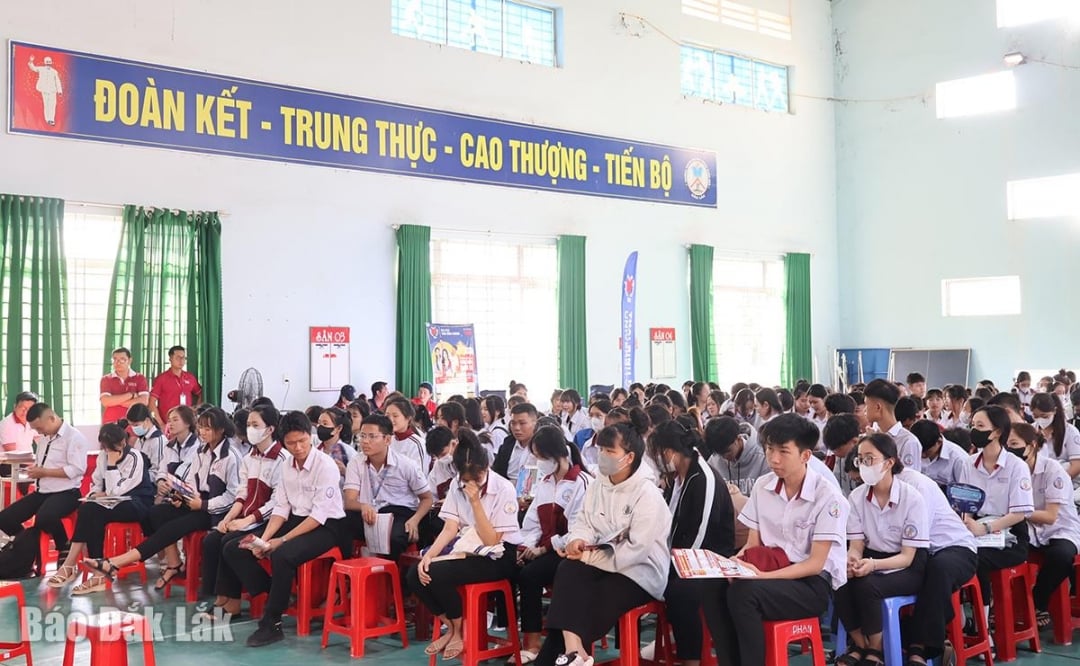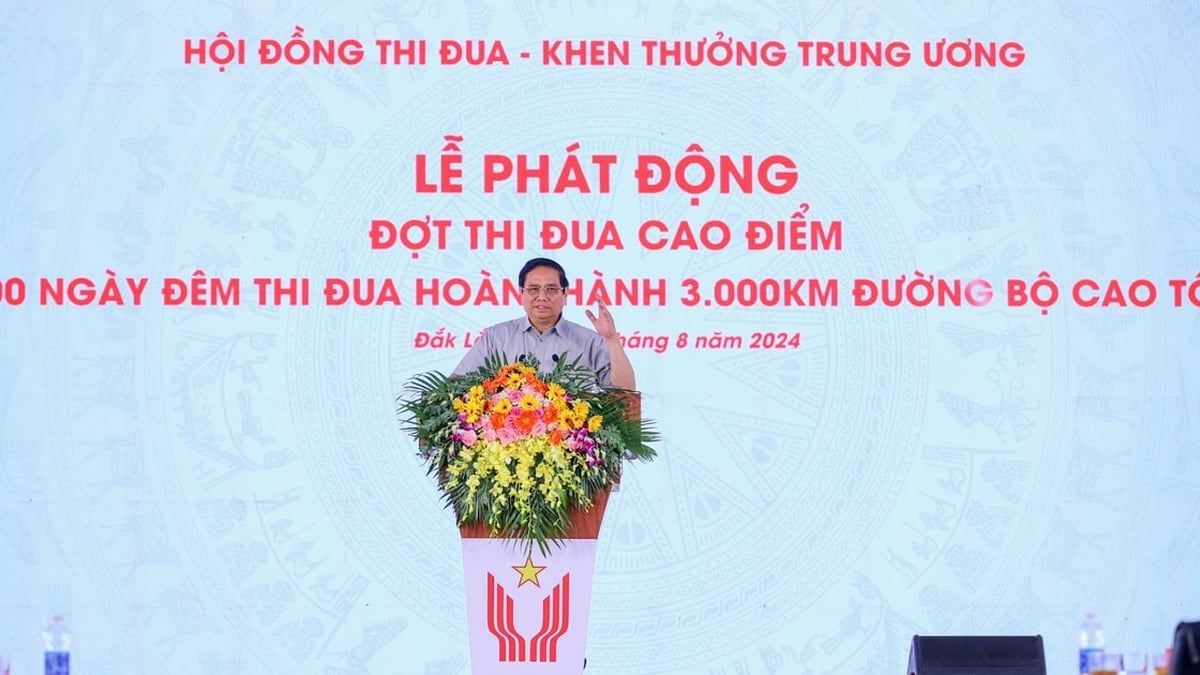However, the fact that some schools offer combinations that lack the basic, core subjects of the training industry is stirring up much debate in society.
According to the 2025 high school graduation exam regulations, candidates will take two compulsory subjects, Math and Literature, along with two elective subjects from 9 subjects (Foreign Language, History, Physics, Chemistry, Biology, Geography, Economic and Legal Education, Information Technology, Technology).
Admission methods in 2025 are also diverse, in which the most common are considering academic results (transcripts), high school graduation exam results, university capacity assessment test results, etc.
However, besides the familiar admission combinations, this year there are many surprising combinations, even going against expectations about the relationship between admission subjects and majors.
For example, the History Pedagogy Department of Hanoi Capital University (Hanoi City) has groups that do not include History in the method of considering high school graduation exam results and using the results of the 2025 competency assessment exam: D01 (Math, Literature, English); C04 (Math, Literature, Geography); C14 (Math, Literature, Economic and Legal Education ). The English Pedagogy Department also considers the groups C03 (Literature, Mathematics, History), C04 (Literature, Mathematics, Geography), C14 (Literature, Mathematics, Economic and Legal Education ).
 |
| Candidates participating in the 2025 Competency Assessment Test organized by Ho Chi Minh City National University at Tay Nguyen University. |
Thai Nguyen University of Education has a History Pedagogy major that recruits students with a combination of Literature, Math, and English subjects based on the results of the 2025 competency assessment exam.
Hoa Binh University enrolls students in the major of Medicine and Traditional Medicine, group A00 (Math, Physics, Chemistry) without Biology.
Van Lang University recruits many "strange" combinations for the health sector, including medicine with "strange" combinations such as: Mathematics, Chemistry, Economic and Legal Education; Mathematics, Chemistry, Technology...
The fact that schools utilize new subjects in their admission combinations is one way to attract candidates with abilities and interests suitable for new, highly applicable majors.
However, the "novelty" in the combination that ignores core subjects (for example, History Pedagogy but does not use History learning results; Medicine but does not use Biology results) is contrary to common sense and is very difficult to understand, causing concern about the input quality, training program and output quality of the industry and the school.
Because each major has fundamental subjects in the general education program and learning basic knowledge for 12 years is a thorough preparation for learning advanced knowledge in the direction of self-study and self-research at university level. This is a reasonable conclusion that has been drawn over many years.
On the other hand, the absence of core subjects may inadvertently eliminate candidates who have real passion and ability for core subjects related to the field of study. In particular, this is also contrary to the long-standing knowledge of career education in high school: choosing a major and choosing a career must depend on each person's ability; the ability factor will determine the completion of the study program (graduation) and future career success.
 |
| Students of Buon Don district participate in career education and enrollment activities for 2025 organized by the Department of Education and Training in coordination with universities across the country. |
There is also a hypothesis that whether the curriculum is “sufficient” to meet the requirements of specialized knowledge in the core subjects? Or does the school lower the training standards for students admitted in this “strange” combination? If the standards are not lowered, will students admitted through this type of combination have enough capacity, perseverance to study and enough passion to stick with the profession after graduation?
Diversifying the combination of subjects to create more opportunities and ensure fairness for candidates is reasonable; it helps schools attract more applications. However, this also reveals a negative side when schools prioritize quantity and "quotas" while ignoring the requirements for knowledge and core competencies. This is a cause for concern, because pedagogy and medicine are key fields with the target audience being people (training people to train people; training people to take care of people's health).
Therefore, training institutions must be responsible for the quality of training and output, avoiding the situation of "picking up" candidates at all costs. As for families, candidates also need to consider "strange" combinations, because being admitted is only the first step of the university path; if you do not have the capacity to study, studying at university is very stressful, easy to "break up" halfway, wasting both money and time.
| The Ministry of Education and Training requires training institutions to organize university and college admissions for Preschool Education in 2025: review admission combinations and methods; select admission subject combinations based on the requirements of basic knowledge and core competencies that candidates need to have to study; admission subject combinations or entrance thresholds for teacher training must have specific requirements for corresponding subject knowledge... |
Source: https://baodaklak.vn/giao-duc/202504/to-hop-la-trong-tuyen-sinh-dai-hoc-nam-2025-cuoc-dua-voi-nhung-moi-lo-81d0584/



































































































Comment (0)